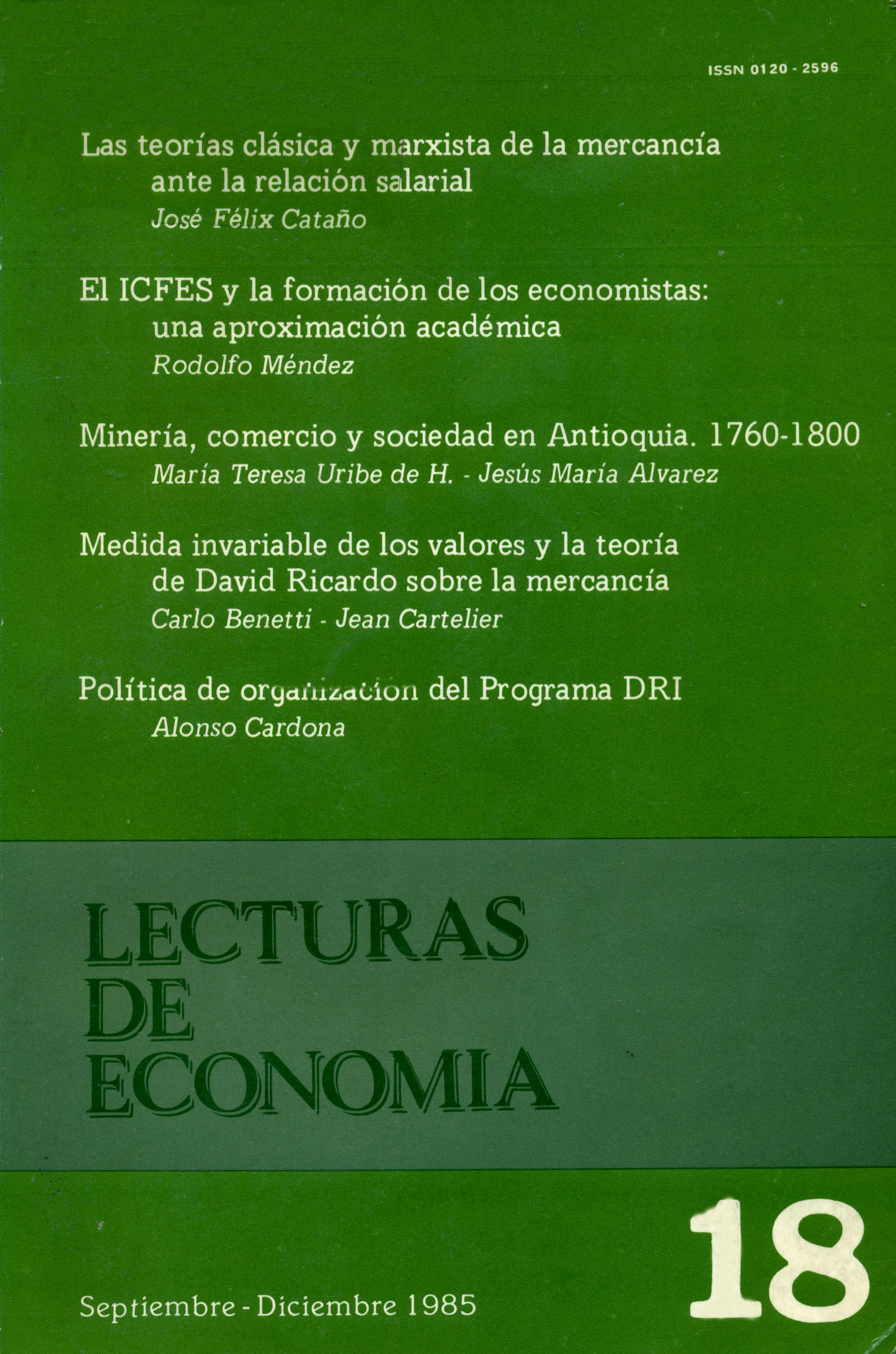Política de organización del programa DRI
DOI:
https://doi.org/10.17533/udea.le.n18a8086Abstract
• Resumen: Desde 1976 el Programa de Desarrollo Rural Integrado-DRI- diseñó, con otros programas estatales para el sector rural una política de organización campesina. Su aplicación práctica ha encontrado diversos obstáculos: la inconsistencia de la propia política diseñada, las limitaciones en la capacidad operativa de las entidades ejecutoras y la carencia de unidad de objetivos, entre ellas, el desconocimiento de los efectos que tiene en la vida veredal la propia política de organización que se está aplicando y, finalmente, las limitaciones del Programa para satisfacer las expectativas de los productores. Sin embargo, la creación de un sistema de Comités Veredales y Municipales DRI ha tenido amplia aceptación por los campesinos beneficiarios pues le proporcionan a una categoría especial de los pequeños productores rurales un medio de cohesión y homogenización para relacionarse en condiciones ventajosas con las entidades de la administración pública.
• Abstract: Since 1976 the Program of Integrated Rural Development designed, among other state programs for the rural sector, a policy for peasant’s organization. Its application has had several difficulties: the inconsistency of the policy design, the operational restrictions of the institutions in charge and the lack of common objectives among them; the ignorant about organization policy effects in the "veredas" life; and finally, the Programs incapacity to meet producer’s expectations. Nevertheless, the system of committees created by the DRI program at every town and "vereda" has been widely accepted by benefit peasants, since it gives them, as small scale rural producers, die cohesive mean to establish more advantageous relations with the government’s administration.
Downloads
Downloads
Published
How to Cite
Issue
Section
License
This page, by Universidad de Antioquia, is licensed under a Creative Commons Attribution License.
Authors who publish with this journal agree to retain copyright and grant the journal right of first publication, with the article licensed under a Creative Commons Attribution-NonCommercial-ShareAlike License allowing others to share it as long as they acknowledge its authorship and original publication in this journal.
Authors can enter into separate, additional contractual arrangements for the non-exclusive distribution of the journal's published version of the work (e.g., post it to an institutional repository or publish it in a book), provided that these arrangements be not for profit and the journal be acknowledged as the original source of publication.
Authors are permitted and encouraged to post their papers online (e.g., in institutional repositories or on their websites), as it can lead to valuable exchanges as well as greater citation of the published work.







